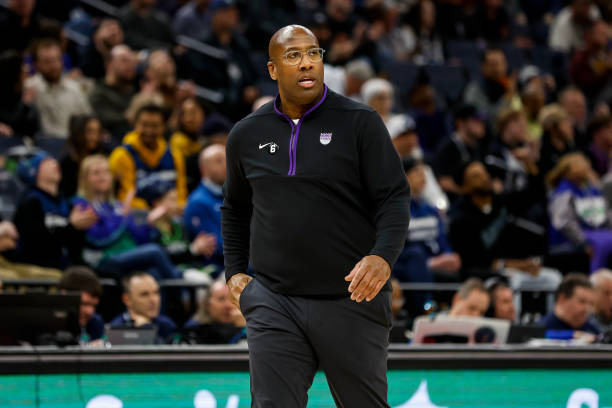According to ESPN’s Adrian Wojnarowski, Mike Brown and the Sacramento Kings have reached an agreement on a lucrative contract extension. After initially signing a four-year deal with the Kings before the 2022-23 season, Brown was entering the final year of his contract with guaranteed money, with a mutual option for the final year. Brown, who was named Coach of the Year for the 2022-23 season, was reportedly seeking an average annual salary of at least $10 million.
The Kings initially hesitated at Brown’s salary demands, delaying extension talks before finding a compromise that satisfied both parties. Brown received a two-year extension, extending his contract through the 2026-27 season, with $21 million in new money. This new agreement sets his salary at $8.5 million per season, below his initial asking price. To secure Brown’s agreement, the Kings increased his 2024-25 salary by $4 million to $8.5 million.
This deal essentially acts as a two-year extension averaging $10.5 million per year but spreads the new money over three years. This arrangement allows the Kings to save money in the long term while Brown benefits from a higher annual salary sooner. Brown may have preferred a longer commitment, but this setup allows him to re-enter the market sooner if he continues to demonstrate his value, potentially benefiting from the rapidly increasing head coach salaries.
The head coach market has seen significant changes recently, with top-tier candidates now commanding unprecedented salaries. Monty Williams started the trend in 2023 with a $13.1 million annual deal with the Detroit Pistons. Greg Popovich followed with a $16 million per year contract from the San Antonio Spurs, and Erik Spoelstra secured a $15 million annual salary from the Miami Heat. Steve Kerr extended his contract with the Golden State Warriors at $17.5 million per year, while Mike Budenholzer got $10 million from the Phoenix Suns, and Ty Lue landed a nearly $14 million per year extension with the Los Angeles Clippers.
These high-value contracts are becoming the norm for elite coaches. Michael Malone and Rick Carlisle also secured extensions, further reinforcing the new salary baseline of $10 million per season for top-tier NBA head coaches. The Kings’ decision to negotiate hard with Brown might save them money in the short term but could result in higher costs if they wish to retain him beyond 2026-27.
Despite his impressive achievements, including breaking the Kings’ 16-season playoff drought and leading the team to consecutive winning seasons, Brown’s initial contract negotiations suggest the Kings may not fully recognize his value. While the Kings eventually extended Brown’s contract, their reluctance to meet his initial demands could imply a lack of complete confidence in his long-term potential.
Brown’s extensive resume includes successful stints with the Cleveland Cavaliers and Los Angeles Lakers, and he contributed to the Golden State Warriors’ championship runs as an assistant coach. His overall coaching record, which includes a .620 win percentage and multiple Coach of the Year awards, underscores his capabilities.
In the Kings’ first playoff appearance under Brown, they faced the Golden State Warriors in a dramatic seven-game series, ultimately losing to the defending champions. Despite this, Brown’s leadership has transformed the Kings from a struggling franchise into a solid playoff contender. The team’s slight dip in performance during the 2023-24 season was within expectations, given their previous overachievement.
Defensively, the Kings improved significantly under Brown, while their offensive efficiency saw a slight decline. Brown’s decision to integrate Keon Ellis into the starting lineup in March 2024 resulted in a substantial defensive boost, demonstrating his ability to adapt and improve the team’s overall performance.
The Kings’ decision to extend Brown for only two additional years suggests a cautious approach, potentially missing an opportunity to solidify their coaching future. While Brown’s extension ensures his short-term presence, the Kings’ hesitancy could lead to higher costs in future negotiations or even the risk of losing a highly capable coach.
The Kings’ approach to Brown’s extension highlights a blend of financial prudence and uncertainty about his long-term impact. As the market for top-tier NBA head coaches continues to evolve, Brown’s next contract could become even more lucrative, underscoring the importance of recognizing and retaining coaching talent in a competitive league.

